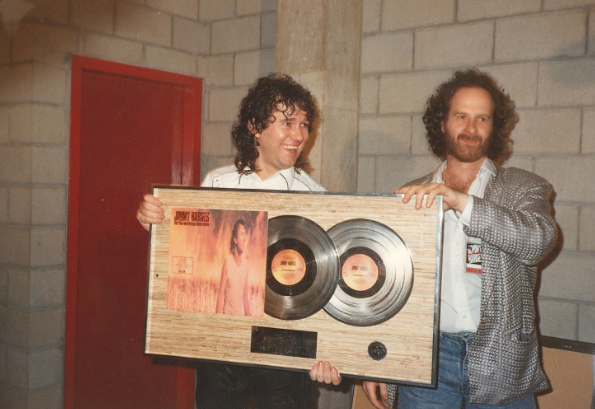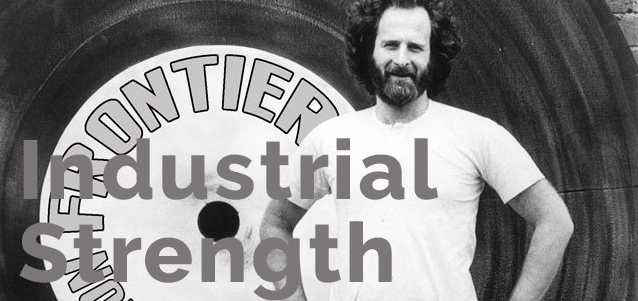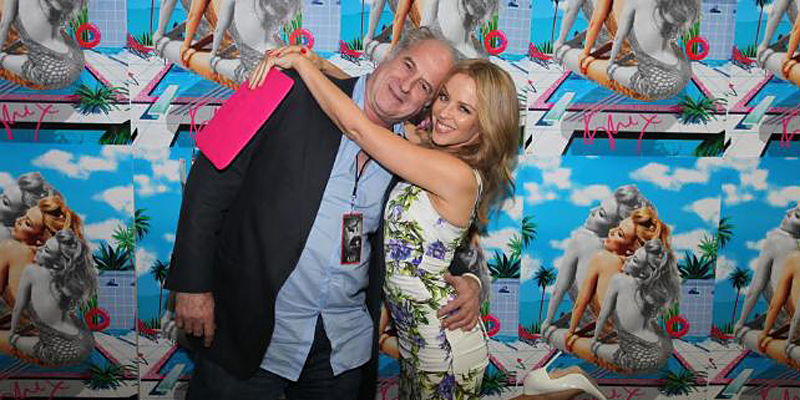Michael Gudinski’s 10 greatest hits

Yesterday, the music industry was rocked by the shock news that pioneering music businessman Michael Gudinski had passed away at just 68. As the industry mourns his passing, The Music Network recalls some of bis biggest moments: from the starling achievements and almost failures, the the personality, savvy and innovation which changed the game.
1. MILLION-DOLLAR RIFF
Frontier Touring was one of the biggest touring companies in the world. In 2019 the company was ranked the third-largest globally, grossing over US$245 million after shifting 2,768,259 tickets across 440 shows between December 2, 2017, and November 17, 2018.
Ed Sheeran shifted one million tickets in Australia and New Zealand in 2018, selling enough in Dunedin to equal the NZ city’s entire population.
Frontier promoted the 2006 and 2007 Countdown Spectacular Tours, shifting 83,000 tickets the first year, and 65,000 during the second.
In May 2005, Kylie Minogue’s Showgirl Tour sold over 200,000 tickets, with a reported gross of $20 million for 20 shows before it even started. The show had to be cancelled when the singer was diagnosed with breast cancer.
2. BLACK AND BLUE
When Rupert Murdoch’s News Corp bought 49% of Mushroom Records, the rumoured price tag was $20 million. News Corp had already owned Festival Records from the ‘60s.
He sold the rest of Mushroom Records for $40 million in 1998.
It was one of Gudinski’s best deals. The recording industry was already starting to dip from digital piracy, and the sale craftily did not include the lucrative Mushroom Music publishing arm which BRW estimated was turning over between $10 million to $12 million a year.
Gudinski and Murdoch’s business paths crossed when both made a bid for the Triple M radio network. While chatting, Gudinski let slip he was thinking of selling half the label to a Japanese company and Murdoch thought it should stay an all-Australian company.
In the 1980s, rumours were Murdoch was buying EMI Music and wanted Gudinski to run it.
Gudinski said Murdoch rang him for his views on buying the label “because most of his experience in the music business hadn’t been that successful”, but he had never offered him the job.

3. GOLDEN MILES
From 1972 when Mushroom Records was set up, to its sale 26 years later, it signed 400 acts and issued 8,000 releases.
Its first office in Windsor was in a renovated ex-brothel, chosen for its many rooms. It then moved to a red brick warehouse in Albert Park.
The label was the soundtrack to the lives of many Australian generations with early releases from The Dingoes, Ayers Rock, Mackenzie’s Theory, Madder Lake and Matt Taylor to Skyhooks, Split Enz, Paul Kelly, Jimmy Barnes, Kylie Minogue, Renee Geyer, Hunters & Collectors, The Models and Yothu Yindi, and more recently The Rubens and The Teskey Brothers.
At its peak in 1987, Mushroom turned over $50 million, and had a 10% share of the Australian recorded music market. This was massive for an independent operation. The only other indie to equal this was Alberts, which had AC/DC, The Angels, John Paul Young and Rose Tattoo.
4. HOW LONG
Michael Gudinski never quite achieved one long-term ambition – to have a #1 hit in America.
There were early moves: Ayers Rock was signed to A&M, The Dingoes to The Rolling Stones’ management, and Skyhooks’ signed a million-dollar deal with Mercury Records – but nothing came of it after the band was delayed for 12 months going into the US market.
It was made worse because he passed on Men At Work (twice). He also turned down Australian Crawl, Tina Arena and initially, Cold Chisel.
He said: “[I love to] believe that had I been involved with Cold Chisel, they may have been the worldwide success that they should have been.
“However, I still claim that Jimmy Barnes was not on the demos that I was sent. Different singer. True story. Ask Jimmy.”
However, he did reach #2 stateside with Kylie Minogue and managed a couple of Top 20s.
He always maintained that if he were to ever call America home, he could have achieved it, but he liked living in Melbourne too much.
Split Enz asked him to manage them, but he didn’t want to relocate to London.

5. DO YOU SEE WHAT I SEE?
In 2017 when BRW did a feature on his business empire, the publication narrowed it down to 24 companies, ranging from labels, live promoters, merchandise and marketing companies, venues, radio production, publishing and festivals.
But 24 was a conservative figure – because, during the interview with the journalist, Gudinski admitted he’d forgotten if some of them still operated.
He ran Mushroom Pictures for a time, with Chopper grossing $5.8 million, but lost interest and turned his attention to TV projects.
Noting his small attention span, one of his lieutenants sighed: “You want someone who gets distracted after the first minute of a single to have the patience to read through a whole script?”
6. TO HIS DOOR
When Crown Casino in Melbourne was set to launch, businessman Lloyd Williams (also a fellow racing horse owner) asked him to get an international superstar act that would give the venue worldwide publicity.
“Give me two cheques for $1 million each,” he said, before delivering Elton John & Billy Joel.
7. EGO IS NOT A DIRTY WORD
In the early ‘70s, Mushroom Group’s ambitious and expensive marketing ideas, along with too many worthy acts not crossing over to mainstream radio, almost saw it go belly-up.
Then came the first two Skyhooks albums, Living In The Seventies in 1974 with 350,000 copies sold (made with a budget of $12,000) and Ego Is Not A Dirty Word in 1975 with 210,000 units.
How tight were the record label’s finances?
When the band went into the studio to work on Ego, its owners locked them out until they got paid. Gudinski had to hastily send a cheque before work could commence.

8. THE MIGHTY ROCK, THE MIGHTY ROLL
At the age of nine, Gudinski was already showing the business savvies.
During football matches, he would charge people to park their cars in the vacant lot next door to the family home in Melbourne.
At 15, a couple of school friends suggested they run dances during school holidays. He was soon earning $500 a week – big money for those days as a teenager.
He soon dropped out of school to work in an agency. His hard-working Russian immigrant father was annoyed: he expected his son to become a lawyer.
9. SKY-HOOVES
Michael Gudinski belonged to a rare club in the racing industry – a co-owner of no less than three Melbourne Cup winners.
These were Almandin (2016), Rekindling (2017) and Twilight Payment (2020).
10. SPINNING AROUND
Gudinski was involved in clubs in Melbourne, including the legendary Bombay Rock.
The Mercury Lounge club, in the Crown Complex, made $10 million a year until Crown closed all its nightspots because of the unruly crowds they attracted.
Gudinski had intended to set up a Mercury Lounge in every capital city.
The Siren and Locker Room (in which he had a 25% stake) in Colonial Stadium together grossed $7 million a year.






























